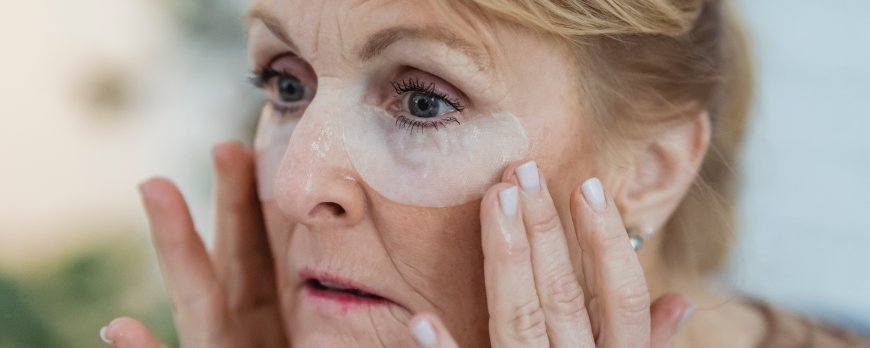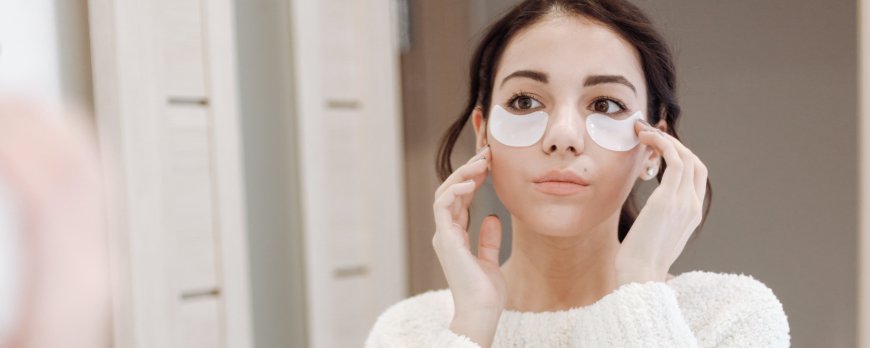What is anti-ageing?
Discover 'What is anti-ageing?' Get insights into the science and methods behind this popular health concept. Invigorate your youth with valuable advice.

What is Anti-Ageing?
Anti-ageing is a branch of medicine that aims to prevent or treat the underlying causes of aging in order to extend the healthy lifespan of individuals and maintain youthful characteristics. It is an integrated approach that combines conventional and alternative medical practices.
Key Takeaways:
- Anti-ageing is a medical field dedicated to preventing and treating the causes of aging.
- Its goal is to extend the healthy lifespan and maintain youthful characteristics.
- Anti-ageing approaches combine conventional and alternative medical practices.
- Multiple theories explain the biochemical processes involved in aging, including oxidation, glycation, methylation, chronic inflammation, and hormonal deregulation.
- Anti-ageing interventions include lifestyle changes, nutrition, supplementation, and hormone replacement therapy.
- It is important to consult with a healthcare professional to develop an individualized anti-aging plan.

Understanding the Science of Ageing
Ageing is a progressive failure of metabolic processes, affecting various aspects of the body, including the skin. As we age, our skin undergoes natural changes due to decreased collagen production and a slower cell turnover rate. These factors contribute to visible signs of ageing such as wrinkles, fine lines, and sagging.
In addition to these external changes, ageing also impacts the skin at a cellular level. Free radicals, a byproduct of normal cellular metabolism and environmental factors, cause oxidative stress and damage to cells and tissues. This oxidative stress leads to the breakdown of collagen and elastin, essential proteins that give the skin its elasticity and firmness.
Glycation, another process involved in ageing, occurs when excess sugar molecules attach themselves to proteins and lipids in the skin. This process leads to the formation of advanced glycation end products (AGEs), which contribute to the development of wrinkles, age spots, and dullness.
To combat the signs of premature ageing and maintain the health of the skin, it is important to adopt a skincare routine that focuses on nourishing and protecting the skin. This may include using anti-ageing products containing ingredients such as retinol, hyaluronic acid, and antioxidants to promote collagen production, hydrate the skin, and neutralize free radicals. Additionally, adopting healthy lifestyle habits such as avoiding excessive sun exposure, quitting smoking, and maintaining a balanced diet can help slow down the ageing process and improve the overall health of the skin.
Theories of Ageing
There are multiple theories that explain the biochemical processes involved in ageing, such as oxidation, glycation, methylation, chronic inflammation, and hormonal deregulation. These theories help us understand how the body undergoes changes as we age and why certain processes occur. Here is a brief overview of each theory:
Oxidation:
Oxidation theory suggests that the accumulation of free radicals in the body leads to cellular damage and ageing. Free radicals are highly reactive molecules that can cause oxidative stress, damaging cells and tissues over time. Antioxidants, found in fruits and vegetables, play a critical role in neutralizing free radicals and reducing oxidative stress.
Glycation:
Glycation theory focuses on the formation of advanced glycation end-products (AGEs), which result from the binding of sugars to proteins in the body. AGEs can impair the structure and function of proteins, leading to tissue damage and accelerated ageing. Limiting the intake of sugary foods and maintaining healthy blood sugar levels can help reduce glycation and its effects.
Methylation:
Methylation theory emphasizes the importance of maintaining proper DNA and protein methylation. Methylation is a biochemical process that regulates gene expression and protein function. Age-related changes in methylation patterns can lead to altered gene expression and impaired cell function. Consuming foods rich in vitamins and nutrients that support methylation, such as folate and B vitamins, may help promote healthy ageing.
Chronic Inflammation:
Chronic inflammation theory proposes that low-level, persistent inflammation contributes to ageing and age-related diseases. Inflammation is a natural immune response to injury or infection, but when it becomes chronic, it can damage cells and tissues. Lifestyle factors such as poor diet, sedentary behavior, and stress can trigger chronic inflammation. Adopting an anti-inflammatory diet and engaging in regular exercise can help mitigate the effects of chronic inflammation.
Hormonal Deregulation:
Hormonal deregulation theory suggests that imbalances in hormone production and function can accelerate the ageing process. As we age, hormone levels decline, impacting various bodily functions. Hormone replacement therapy may be considered to restore hormonal balance and alleviate age-related symptoms. However, it is important to work with a healthcare professional to determine the appropriateness and effectiveness of such therapies.
Understanding these theories provides valuable insights into the ageing process. While ageing is a natural part of life, adopting healthy lifestyle choices, consuming a balanced diet, managing stress, and addressing hormone imbalances can support healthy ageing and promote overall well-being.
Anti-ageing Methods and Treatments
Anti-ageing methods and treatments encompass a wide range of approaches, both conventional and natural, aiming to address the underlying causes of ageing and maintain a youthful appearance. Whether you prefer pharmaceutical interventions or prefer a more holistic approach, there are options available to suit your preferences and goals.
Conventional anti-ageing treatments often include procedures such as Botox injections, dermal fillers, and laser therapy. These methods work by reducing the appearance of wrinkles, fine lines, and sagging skin. They can also help improve skin texture and tone, giving you a more youthful and rejuvenated appearance. Consulting with a dermatologist or plastic surgeon can help you determine which treatments are best suited for your individual needs.
For those who prefer a more natural approach to anti-ageing, there are a variety of options available as well. Natural anti-ageing skincare products, such as those containing retinol, hyaluronic acid, and antioxidants, can help improve skin elasticity, reduce the signs of ageing, and promote a healthy complexion. Additionally, lifestyle changes such as adopting a balanced diet rich in nutrients, regular exercise, stress management, and adequate sleep can also contribute to a more youthful appearance.
Ultimately, the key to successful anti-ageing lies in finding a treatment or combination of treatments that work best for you. Whether you choose conventional methods or prefer a more holistic approach, consulting with a healthcare professional can provide valuable guidance and support in developing an individualized anti-ageing plan that suits your unique needs and goals.

The Benefits of Anti-ageing
Anti-ageing practices and products offer a multitude of benefits, ranging from improved health and vitality to enhanced physical appearance. By targeting the underlying causes of ageing, these interventions aim to slow down the ageing process and promote overall well-being.
- Improved health: Anti-ageing practices focus on optimizing various aspects of health, such as boosting the immune system, improving cardiovascular health, and enhancing cognitive function. By adopting healthy lifestyle habits and incorporating anti-ageing treatments, individuals can experience increased energy levels, reduced risk of age-related diseases, and improved overall longevity.
- Vitality and youthfulness: Anti-ageing interventions aim to enhance physical and mental vitality, allowing individuals to maintain a youthful appearance and outlook on life. These practices may include skincare regimens, anti-ageing treatments, and stress management techniques. By promoting healthy ageing from within, individuals can feel and look more vibrant and youthful.
- Enhanced physical appearance: Many anti-ageing products and treatments are specifically designed to address visible signs of ageing, such as wrinkles, sagging skin, and age spots. By utilizing scientifically formulated skincare products and undergoing targeted treatments, individuals can achieve smoother, firmer, and more radiant skin, ultimately enhancing their physical appearance and boosting self-confidence.
It is important to note that the benefits of anti-ageing practices and products may vary for each individual. Consultation with a healthcare professional is crucial to determine the most appropriate interventions based on specific health goals and needs. By taking a personalized approach, individuals can maximize the benefits of anti-ageing and enjoy a healthier, more youthful life.
Lifestyle Changes for Anti-ageing
Adopting certain lifestyle changes can greatly contribute to the anti-ageing process, promoting overall health and well-being. Making small modifications to your daily routine can have a significant impact on slowing down the ageing process and maintaining a youthful appearance. Here are some key lifestyle changes to consider:
- Follow a balanced diet: Include a variety of fresh fruits, vegetables, lean proteins, whole grains, and healthy fats in your diet. Avoid processed foods and excessive sugar intake, as they can accelerate the ageing process.
- Stay active: Engage in regular physical activity, such as brisk walking, jogging, or cycling, to keep your body fit and maintain muscle tone. Exercise also helps boost circulation and promote a youthful glow.
- Manage stress: Chronic stress can accelerate ageing and negatively impact your overall well-being. Practice stress management techniques such as meditation, yoga, or deep breathing exercises to reduce stress levels and promote relaxation.
- Get quality sleep: Aim for 7-9 hours of quality sleep each night. Sufficient sleep allows your body to repair and regenerate, keeping your skin and body functioning optimally.
Incorporating these lifestyle changes into your daily routine can have a positive impact on your overall health and help slow down the ageing process. However, it's important to remember that everyone is unique, and consulting with a healthcare professional is recommended to develop an individualized anti-ageing plan that suits your specific needs and goals.
Nutrition and Supplementation for Anti-ageing
Proper nutrition and supplementation play a crucial role in the anti-ageing journey, providing essential nutrients and supporting overall health. A well-balanced diet rich in vitamins, minerals, antioxidants, and omega-3 fatty acids can help combat the effects of ageing and promote healthy cellular function.
When it comes to anti-ageing nutrition, incorporating a variety of fruits, vegetables, whole grains, lean proteins, and healthy fats is key. These foods are not only packed with essential nutrients but also contain phytochemicals and antioxidants that help protect against cellular damage caused by free radicals.
Supplementation can further enhance the anti-ageing effects of a healthy diet. Certain nutrients, such as vitamin C, vitamin E, and coenzyme Q10, have antioxidant properties and can help neutralize free radicals. Omega-3 fatty acids, commonly found in fish oil supplements, are known for their anti-inflammatory effects and can support heart health and cognitive function.
The top nutrients for anti-ageing:
- Vitamin C: This powerful antioxidant helps stimulate collagen production and protect against skin damage caused by UV exposure.
- Vitamin E: Another potent antioxidant that helps protect cell membranes from oxidative stress and supports healthy skin and hair.
- Coenzyme Q10: This enzyme is involved in cellular energy production and acts as a powerful antioxidant, protecting against oxidative damage and supporting cardiovascular health.
- Omega-3 fatty acids: Found in fatty fish or fish oil supplements, omega-3s have anti-inflammatory properties and can help maintain brain health and reduce the risk of chronic diseases.
- Resveratrol: A polyphenol found in red wine, grapes, and berries, resveratrol has been shown to have anti-ageing effects by reducing inflammation and oxidative stress.
While nutrition and supplementation can play a significant role in the anti-ageing process, it's important to remember that they should be part of a comprehensive approach that includes other factors like lifestyle changes, exercise, stress management, and adequate sleep. Consultation with a healthcare professional is recommended to develop an individualized anti-ageing plan tailored to your specific needs and goals.

Hormone Replacement Therapy and Anti-ageing
Hormonal deregulation is a significant factor in the ageing process, and hormone replacement therapy can play a crucial role in restoring balance and supporting overall health. Age-related hormonal changes can lead to a variety of symptoms, such as fatigue, weight gain, decreased libido, and mood swings. Hormone replacement therapy (HRT) involves the use of synthetic hormones to replace the declining levels in the body. This treatment can help alleviate these symptoms and provide numerous potential benefits for anti-ageing.
One of the main hormones involved in the ageing process is estrogen. Estrogen levels decrease in women during menopause, leading to various physical and emotional changes. HRT can help regulate estrogen levels, reducing symptoms such as hot flashes and night sweats. It may also have positive effects on bone health, reducing the risk of osteoporosis and fractures.
Testosterone is another hormone that plays a key role in the ageing process. In men, testosterone levels gradually decline with age, which can contribute to decreased energy, muscle mass, and sexual function. HRT with testosterone can help address these issues and improve overall well-being and vitality.
However, it is important to note that hormone replacement therapy should be approached with caution and under the supervision of a healthcare professional.Individualized treatment plans are essential to ensure the appropriate balance of hormones is achieved. Regular monitoring and adjustments are necessary to minimize risks and maximize benefits. HRT is not suitable for everyone and may have contraindications for certain individuals, such as those with a history of hormone-sensitive cancers.
Benefits of Hormone Replacement Therapy for Anti-ageing:
- Relief from menopausal symptoms such as hot flashes and night sweats
- Improved bone health and reduced risk of osteoporosis
- Enhanced energy levels and vitality
- Increased muscle mass and strength
- Improved sexual function and libido
Hormone replacement therapy is just one aspect of an individualized anti-ageing plan. It should be combined with other lifestyle modifications and interventions to maximize the potential benefits. Consulting with a healthcare professional who specializes in anti-ageing medicine is crucial to develop a personalized approach that takes into account each individual's unique health profile and goals. Together, these strategies can help individuals age gracefully and maintain their well-being as they grow older.
Section 9: Individualized Anti-ageing Plans
Developing an individualized anti-ageing plan is essential to address specific needs and goals, and consulting with a healthcare professional is crucial in this process. A healthcare professional can assess your overall health, lifestyle habits, and genetic factors to create a tailored plan that focuses on optimizing your anti-ageing journey.
One aspect of an individualized anti-ageing plan is making lifestyle changes. This may include adopting a healthy diet rich in antioxidants, vitamins, and minerals to support cellular health and reduce oxidative stress. Regular exercise and stress management techniques, such as yoga or meditation, can also play a significant role in slowing down the ageing process.
In addition to lifestyle modifications, a healthcare professional can guide you in choosing the right supplements to support your anti-ageing goals. Certain nutrients, like omega-3 fatty acids, coenzyme Q10, and resveratrol, have been shown to have anti-ageing properties. However, it's important to note that supplements should be taken under medical guidance to ensure safety and effectiveness.
For individuals experiencing hormonal imbalances, hormone replacement therapy (HRT) may be recommended as part of an individualized anti-ageing plan. HRT can help restore hormonal balance and alleviate symptoms associated with ageing, such as fatigue, mood swings, and decreased libido. However, the decision to undergo HRT should be made in consultation with a healthcare professional, as the treatment's benefits and risks must be carefully considered based on individual circumstances.
Conclusion
In conclusion, anti-ageing is a multidimensional approach to maintaining a youthful appearance and extending the healthy lifespan, encompassing various methods and treatments, lifestyle changes, nutrition, and supplementation. By understanding the science behind ageing and consulting with healthcare professionals, individuals can develop personalized anti-ageing plans to invigorate their youth and promote overall well-being.
Anti-ageing medicine recognizes that ageing is a progressive failure of metabolic processes, influenced by factors such as oxidation, glycation, methylation, chronic inflammation, and hormonal deregulation. Free radicals, oxidative stress, and glycation damage cells and tissues, while methylation helps maintain the DNA and proteins. Chronic inflammation and hormonal imbalances also contribute to the aging process.
To combat these processes, anti-ageing practices focus on lifestyle changes, including diet, exercise, stress management, and other factors that can influence the ageing process. Nutrition and supplementation play a crucial role in providing the body with essential nutrients and antioxidants to support healthy cellular function and combat age-related damage.
In some cases, hormone replacement therapy may be recommended to restore hormonal balance, which can significantly impact the aging process. However, it is important to consult with a healthcare professional to determine the appropriate approach and ensure individual needs are met.
By adopting an integrative and personalized anti-ageing plan, individuals can take proactive steps towards maintaining their youthful characteristics, enhancing physical appearance, and improving overall health and well-being. Anti-ageing is not just a health concept; it offers valuable advice and interventions that can have a significant impact on one's quality of life as they age.


































































































































